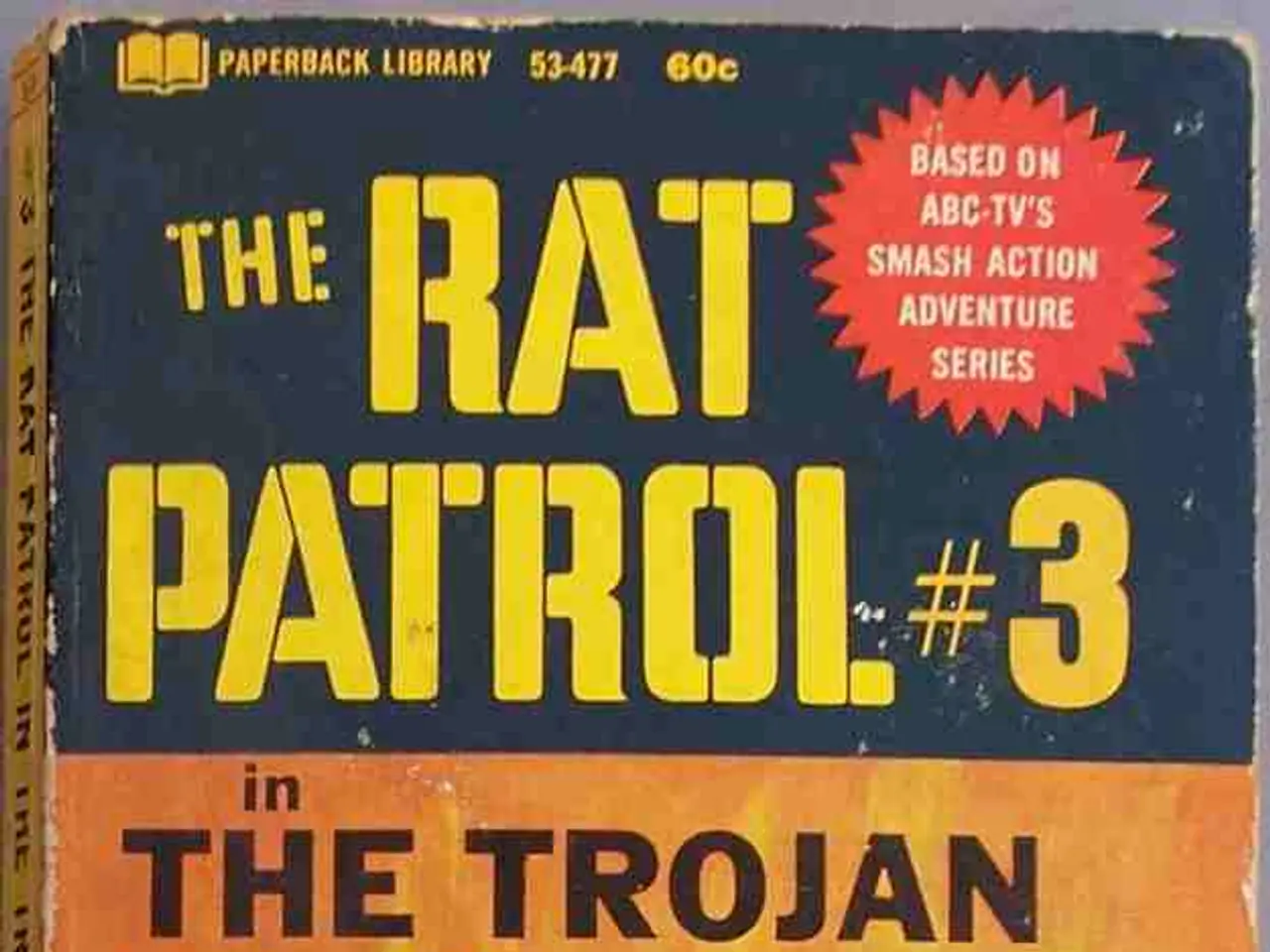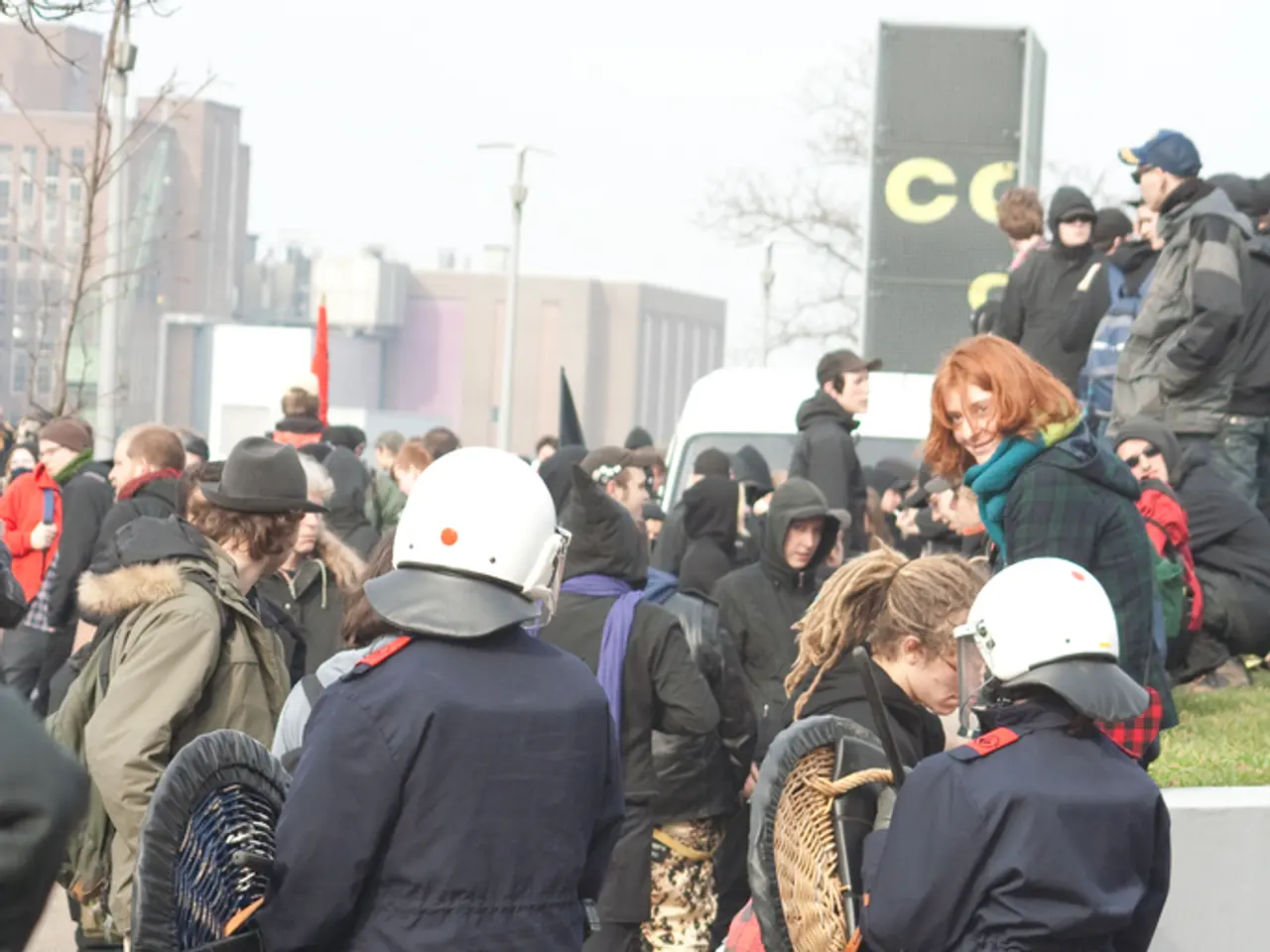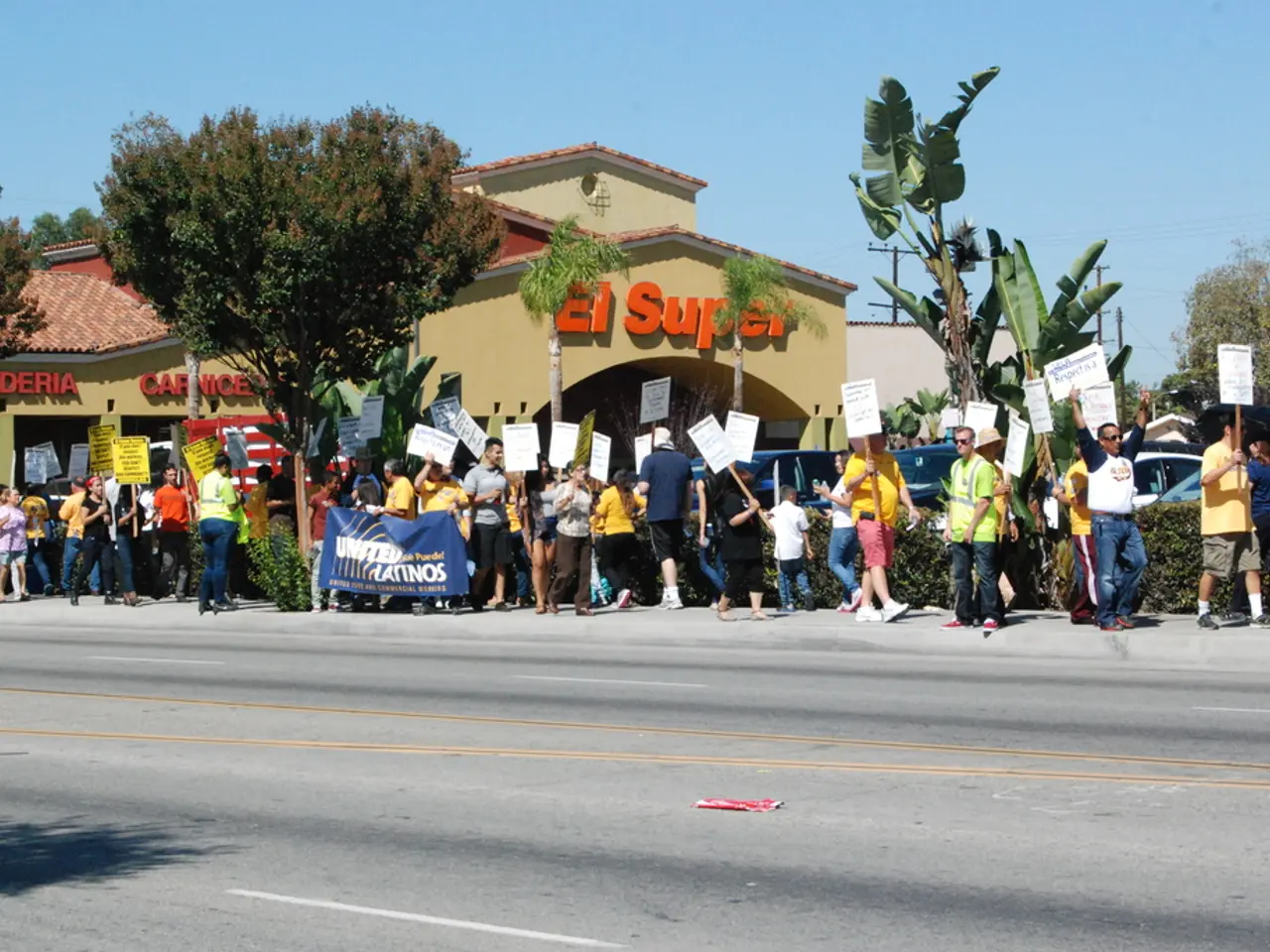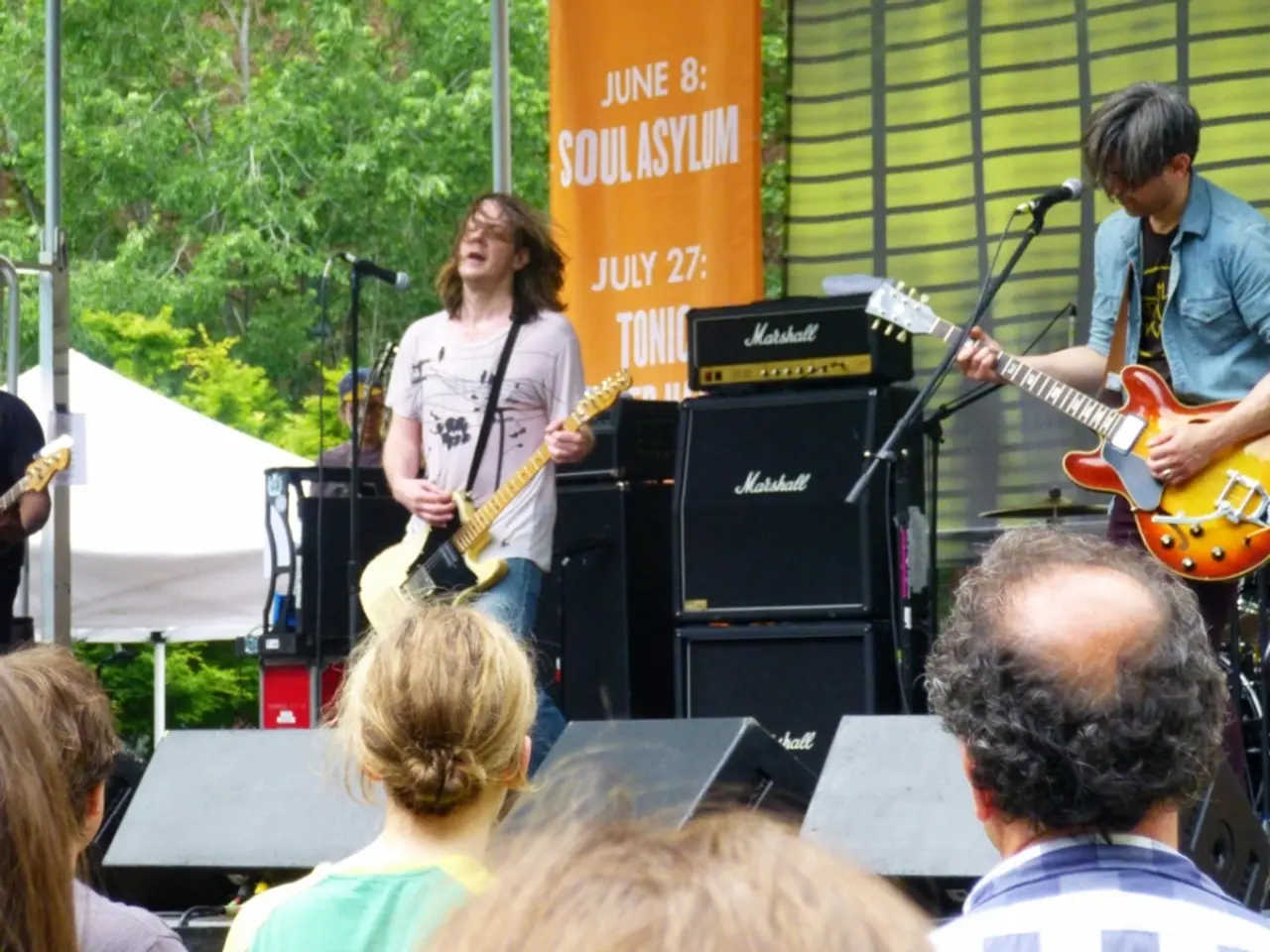Syrian Activists Report 360 Fatalities Due to Violence
In the heart of southern Syria, the city of Suwayda is currently grappling with a volatile and unstable ceasefire. This third attempt at peace, brokered between the Syrian government and the Druze Union, along with other provincial leaders, was intended to restore stability and reintegrate the province into the Syrian state.
The agreement, which involves a comprehensive ceasefire, the deployment of Syrian security forces, and the reestablishment of state institutions in Suwayda, was initially met with some success. The Syrian army reportedly withdrew from the city as part of this deal. However, the situation has since taken a turn for the worse.
The Druze community, a religious minority that predominantly resides in Syria but also in Israel, Lebanon, and Jordan, is divided over the agreement. Sheikh Yusuf Jarbou, the Sheikh Aql of the Druze Monotheists, has supported the agreement, while Sheikh Hikmat al-Hijri has rejected it, calling for continued resistance against Syrian forces. Some Druze armed groups, such as the Men of Dignity, have demanded the full withdrawal of "invading forces."
Clashes have also occurred between armed Druze militias and Bedouin groups, contributing to the violence in Suwayda. The latest clashes resumed shortly after the ceasefire supposedly took effect.
The Syrian government, in its statement, announced a halt to military operations in accordance with the new ceasefire agreement. However, the withdrawal of other security forces from the city is not mentioned in the Ministry of Defense's statement.
Israel has been involved in the region through airstrikes, claiming to protect the Druze minority. These actions have contributed to the tense environment, with Israeli Chief of Staff Eyal Zamir ordering an increase in surveillance and attack capabilities to protect the Druze in Syria.
Despite the agreement, fighting resumed shortly after the Syrian army's withdrawal, indicating a collapse of the ceasefire. Heavy street fighting continues between local factions and Bedouin fighters. Hikmat al-Hijri stated that there were no negotiations and no agreement with "armed gangs who call themselves a government."
UN Secretary-General António Guterres has condemned any violence against civilians and acts that escalate sectarian tensions in Syria. The death toll since the violence began over the weekend is reported to be 360, but this figure cannot be independently verified.
A committee consisting of government representatives and Druze clerics will oversee the implementation of the ceasefire. It remains to be seen whether this committee can bring about the lasting peace that Suwayda so desperately needs.
- The Druze community, split over the agreement in Suwayda, has led to a political divide, with Sheikh Yusuf Jarbou supporting the peace deal while Sheikh Hikmat al-Hijri calls for continued resistance against Syrian forces, demanding the withdrawal of "invading forces."
- The general news is filled with reports of continued war-and-conflicts in Suwayda, as clashes between armed Druze militias and Bedouin groups persist, and local factions engage in heavy street fighting despite the ceasefire agreement.








